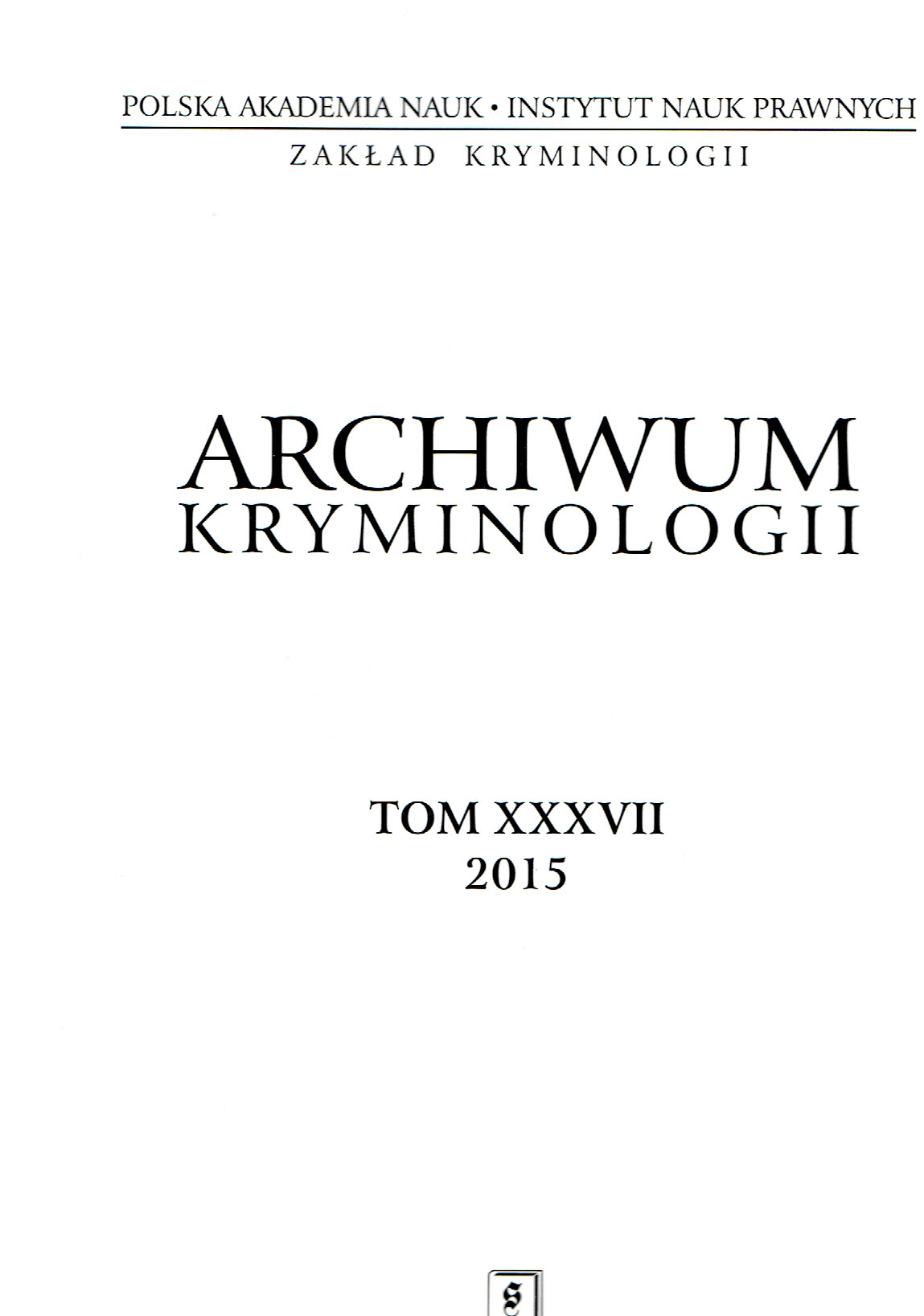OCHRONA PRAW NIELETNICH PRZESŁUCHIWANYCH PRZEZ POLICJĘ – ASPEKTY PRAWNOPORÓWNAWCZE I WYNIKI BADAŃ EMPIRYCZNYCH
Protection of the Rights of Juveniles Interrogated by the Police – Comparative Legal Aspects and Results of Empirical Research
Author(s): Barbara Stańdo-Kawęcka, Justyna KusztalSubject(s): Law, Constitution, Jurisprudence, Criminal Law
Published by: Instytut Nauk Prawnych PAN
Keywords: protection; rights of juveniles; interrogation
Summary/Abstract: In recent years a growing interest in issues related to the protection of rights andsafeguards of ‘children in conflict with the law’ can be observed at the internationallevel. In the light of both the Convention on the Rights of the Child and the Councilof Europe Guidelines on child-friendly justice, in cases concerning children in conflictwith the law, an important element of the system of justice is to provide them with a fairtrial in which their rights and safeguards are not minimised or denied under the pretextof the child’s best interest. The European Union is currently working on a proposalfor a Directive of the European Parliament and of the Council on the proceduralsafeguards for children suspected or accused in criminal proceedings. The aim of theseworks is to set common minimum standards throughout the European Union on therights of children who are suspected or accused in criminal proceedings and childrensubject to European arrest warrant proceedings. One of the problems discussed in thecourse of works on the proposal for the directive is the issue of defining the scope of its application regardless of whether the proceedings in the cases of children in conflictwith the law are treated as ‘criminal proceedings’ under national law.During the period of work on the proposal, the European Commission funded aninternational research project focused on the protection of the rights of interrogatedjuveniles. The project entitled ‘Protecting Young Suspects in Interrogations: a studyon safeguards and best practice’ was coordinated by the University of Maastricht. Itaimed at comparing juvenile justice systems in five countries (England and Wales,Belgium, the Netherlands, Poland and Italy), with particular emphasis on the rights andsafeguards provided to juveniles suspected of breaking criminal law during their firstinterrogation connected with the alleged offence. Comparative legal analysis of juvenilejustice systems in the participating countries revealed that, as opposed to Poland, inall other countries the procedure applied in juvenile cases was principally the criminalprocedure. Moreover, unlike in Poland, it was commonly accepted that in the casesconcerning children in conflict with the law, respecting the child’s best interests didnot mean depriving them of the rights and safeguards granted to adults in criminalproceedings.In Poland, the proceedings in the cases concerning children in conflict with thelaw who are accused of displaying signs of demoralisation or committing a punishableact are regulated in a complicated and unclear way. Legislators assume combining theprocedural provisions included in the Juvenile Act, the provisions of civil procedureand, to a limited extent, the provisions of criminal procedure. Contrary to legislativeassumptions, the first interrogation of a juvenile suspected of punishable acts is mostoften conducted by the police before the institution of juvenile proceedings via thefamily court. Although this first interrogation is often decisive in the further courseof proceedings, the Juvenile Act does not contain detailed regulations in this regardand only briefly refers to the appropriate application of the provisions of the Code ofCriminal Procedure.Empirical research carried out in Poland as part of the project involved individual interviews with lawyers and focus group interviews with both police officers andjuveniles. The results of the research indicate that from the perspective of providingjuveniles with procedural rights and safeguards, current regulations are far fromsatisfactory. Because of the limited scope of the conducted research, it is difficult todraw generalised conclusions. However, the results undoubtedly allow the conclusionthat the issues regarding providing juveniles interrogated by the police with proceduralrights and safeguards ensured in international documents deserve much moreattention than has been paid so far. The results of the conducted empirical researchconstitute another argument for the need of an in-depth discussion on the necessary systemic changes in the Polish juvenile system of justice which is also supported by thejudgments of the European Court of Human Rights in the cases Adamkiewicz v. Poland and Grabowski v. Poland.
Journal: Archiwum Kryminologii
- Issue Year: 2015
- Issue No: XXXVII
- Page Range: 159-190
- Page Count: 32
- Language: Polish

